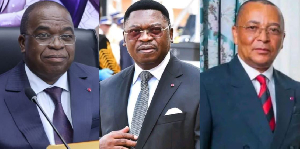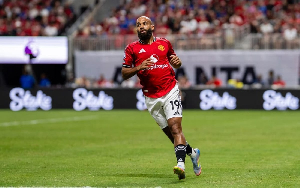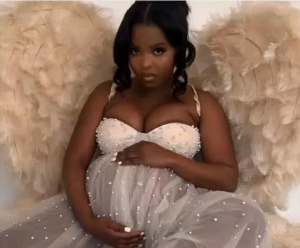An odyssey takes root
A lot has been said and written on the future of Cameroon`s Anglophone minority population over the years, ever since the peoples who constitute some 20 per cent of the total population of today`s Republic of Cameroon, voted through a United Nations-organized plebiscite to join their erstwhile brothers and sisters of Francophone Cameroon in 1961, a year after the latter had achieved independence from France as The Republic of Cameroon.
The Anglophone people, who had previously been administered as part of Eastern Nigeria, were given only two options: either to rejoin the independent Republic of Cameroon with whom they were one - as a German colony before the Germans were booted out when they lost the World War to the allies - or to stay as part of Nigeria.
A poisoned gift?
The option of independence was not given to the people. Yet, they did not reject the “limited freedom” they had been given. Instead, in the plebiscite that was held to decide on the matter, the region known as “the Southern Cameroons” voted to rejoin the independent Francophone Republic of Cameroon. Interestingly, the northern part of Cameroon`s Anglophone population voted to join Nigeria and are today part and parcel of the Republic of Nigeria. The truth of the matter is that they have been completely and totally absorbed into Nigeria, with apparently no visible agitation to break away from the rest of Nigeria on the grounds of marginalization.
Cracks in the edifice
On the other hand, there are considerable dissenting voices among members of the community that joined Francophone Cameroon. The argument is that the union was agreed upon on the basis that the rights of the minority 20 per cent people would be guaranteed. Initially, these rights were guaranteed for about twenty years following the plebiscite because the coming together in 1961 came about in the form of a Federal Republic of Cameroon with an Anglophone State of West Cameroon which was equal in status to the Francophone State of East Cameroon. Overarching the two federated States was therefore the Federal Republic in which the President was the pioneer President of the former Francophone Republic of Cameroon and the Vice President was an Anglophone from the State of West Cameroon.
The parting of the ways
However, in 1982, on the initiative of the Francophone President Ahmadou Ahidjo, the federal structure was dissolved and a “United Republic of Cameroon” was put in place. This was done through a referendum that was held in that year, and perhaps “blindly” approved, thus paving the way for the dismantling of the Federal Republic that had allowed for two equal States. Perhaps surreptitiously, the stage for this transformation had been set earlier in 1966 when Ahmadou Ahidjo convinced the then leader of Anglophone West Cameroon, John Ngu Foncha whose KNDP party was the leading party in Anglophone Cameroon, as well as other Anglophone political leader such as Augustine Ngom Jua, Dr. Emmanuel Endeley and Solomon Tandeng Muna, to give up their different political parties in order to form a single “national” party which was given the name of the “Cameroon National Union” (CNU). However, in reality, the CNU was nothing but a re-clothing of the Union Camerounaise (Cameroonian Union) which Ahidjo had led in Francophone Cameroon previously.
The nail in the coffin
From the moment the Federal Republic was dismantled and the United Republic was created, Cameroon`s Anglophone people lost a lot of their rights. Among these was the fact that they were broken up from one State into two separate States which now constituted two of the seven provinces that made up the new United Republic. On of the two new Anglophone political units was called the South West Province and the other was called the North West Province. From then on the seven new provinces were said to be “equal” in status with the result being that the two Anglophone units were now not only “rivals” to each other but were place on the same footing and reduced to the same level as any of the other “relatively powerless provinces”.
Henceforth, the equality that used to exist between the Anglophone single federated State and its Francophone counterpart ceased to exist. There was now also no longer any forum or platform on which to “speak for all Anglophones” as such. Yaounde, the national capital alone pulled the strings and the few Anglophones who were appointed to national positions were nothing but figure heads or toothless dogs. Since then acts such as appointments no longer really consider the guarantee of the rights of the Anglophone as should have been the case, either quantitatively or qualitatively.
The tower of Babel
It is against this background that several initiatives have been taken by some Anglophones to lead the cause for Anglophone justice. Some have felt that they can bring about change from within the system, by seeking to be elected as president of today`s Republic of Cameroon, which implies that with this option, an Anglophone could be national President not just over other Anglophones but also over the Francophones. Nonetheless, there is another school of thought which believes that Anglophones no longer have any place in today`s Cameroon. Such being the case, what they advocate is outright secession and the setting up of a separate Republic for the Anglophones. While some have called such a Republic the Southern Cameroon, others have called it Ambazonia.
Of wishes and horses
Even so, stakeholders in this struggle must learn to discern what is achievable and what is likely to end up as nothing more than a pipe dream. There are secessionists who believe that the United Nations can and should step in and clean up a mess that was of its own making. The key question that arises is whether the United Nations will do it? The answer is that it is unlikely, the reason being that if the international body has failed to intervene in world cases that are more urgent with blood being shed on a large scale, would it pug its nose in the Anglophone struggle which appears more like an intellectual exercise than anything else?
It is important to note that the UN as it stands today recognizes Cameroon as a single country with its capital in Yaoundé and its President as Paul Biya. That is why national offices of the organization in Cameroon are all based in Yaounde. The other point is that when Paul Biya`s Cameroon sued Nigeria at the International Court at the Hague over what it considered as the illegal occupation of the Bakassi peninsular, the Hague recognized Cameroon`s ownership and handed Bakassi to Paul Biya. It was not handed to anyone from the Anglophone part of Cameroon in which Bakassi falls. Some years ago, when a British prince visited Cameroon, he was received by Paul Biya as Cameroon`s one and only president. Again when the then Secretary General of the UN, Kofi Anan visited Cameroon and pro-Anglophone journalists pressed him on the Anglophone issue, he advised stakeholders to engage in dialogue.
The call to arms
The option of an armed conflict looks even more remote. Firstly, sandwiched as it is between Nigeria and Francophone Cameroon, Cameroon`s Anglophone territory may not benefit from any Nigerian support if it took up arms. One reason is that the very part of Nigeria to which Cameroon used to be attached once decided to fight itself into secession as “the Republic of Biafra”, thus breaking away from the rest of Nigeria, but lost woefully. In the end, the fighters had to swallow their pride and return to the Nigerian status quo under which they still live today. Strictly speaking Nigerians have not quite recovered from that traumatic attempt. It is therefore hard to see how they would support Cameroon`s Anglophones in a similar venture. Another reason why Nigeria may not support an armed struggle on the part of Cameroon`s Anglophone people is that it would not want to jeopardize good relations with France. French investment in Nigeria is considerable. Besides, Nigeria has lifted the French language to a very high status in its daily life.
The spent force of the Southern Cameroons
The hope that a so-called state of the Southern Cameroon`s can be re-established is flawed. How will that be? Will Nigeria accept that such a state be again attached to its Eastern Region as was the case before? The truth is that if Cameroon`s Anglophone population has not moved on from that point, Nigeria had long turned over a new leaf and is now experiencing a totally new dispensation. So why should it turn back the clock just for the sake of a “tiny foreign territory” such as Anglophone Cameroon which strictly speaking has nothing to offer Nigeria? On that point, Anglophone Cameroon stands alone. It is isolated.
The union that never was
A senior member of the Anglophone community and a lonstanding activist in the cause, Mola Njoh Litumbe is adamant that there never was a union between the two peoples, so no one should be talking about reunification or secession. The problem with the line of thought is that so far, Mola Njoh Litumbe has not put forward any credible road map that would lead to a solution. So, as things stand, he seems to be going round in circles.
The fallacy of a united people
There is a false assumption among some Anglophone leaders that people of today`s two Anglophone regions (the current national president, Paul Biya having changed the name of “province” to “region”) are unanimous on a common future with one another. Yet, nothing can be further from the truth. Over the decades, Anglophones from the North West have consistently and persistently dominated those from the South West when it comes, for example, to the number of public offices held in the country, or even the number of educational institutions attended. That is not all, because whereas the various towns and villages in the North West have basically been peopled by people of the North West, the same is not true of parts of the South West where considerable numbers of North Westerners have settled and even turned the indigenous South Westerners into tenants of theirs. If justice to Cameroon`s Anglophones means anything, then such imbalances must also be redressed. The people of the South West also have a right to justice and fair play.
The bitter pill to swallow
The option of autonomy for the country`s Anglophones therefore looks remote, although some people reading this will feel bitter. Very understandably, some tempers are quite high on the issue. But then, it is not emotions that solve a problem. And that is the plain truth. There could be some possibility of restoring the two-state federation, although that would be exceedingly difficult. But it is by far more feasible than dreaming of resurrecting the Southern Cameroons which from several view points looks utopia, although it does not stop those fighting for it to continue doing so. After all, there is a saying that “he who says it can not be done should not stop the person who is doing it.
The missed opportunities
Over and above everything, if Anglophones are serious about stopping their marginalization, they should learn to “speak with one voice”. That does not mean that everybody should think alike and act alike. No. The problem is that at the moment Anglophones are too divided to be able to make any meaningful impact. A typical example is that of John Fru Ndi who has remained the unchallenged leader of Cameroon`s opposition parties in the enire country where there are hundreds of such parties. If proponents of the Anglophone cause were realistic, they would have thrown in their weight behind Fru Ndi who being one of them, could understand where the shoe pinches more than a Francophone president, at least on the surface. But Fru Ndi has never received such support; not even when he very nearly became the country`s president after an election that is widely believed to have been massively rigged by the incumbent Paul Biya in order to maintain his grip on power.
The realism of Fru Ndi`s SDF party
This month of May 2015, on the 26th to be more precise, the SDF celebrated the 25th anniversary of its birth. What really attracts attention is not so much that the anniversary was celebrated but rather that on the occasion of it, the SDF leadership extended an invitation to Paul Biya`s ruling CPDM to participate in festivities marking the occasion in Bamenda – and even more so, the fact that the CPDM accepted the invitation and sent a powerful delegation to the fiesta.
Such a move is no doubt a credit to the SDF and its Chairman John Fru Ndi that they can swallow their political pride and make the first step towards the political “adversary”. Not so long ago, in fact earlier this month, John Fru Ndi traveled to Yaoundé and sat side-by-side – so to speak - with Paul Biya during celebrations marking Cameroon`s National Day on 20th May. That is not all because in the past Fru Ndi had attended public events at Unity Palace, the official residence of the Cameroonian Head of State, presided at by Paul Biya. However, the biggest headline-stealing encounter between both men is the one they had in Bamenda when Paul Biya was there to preside at festivities marking the National Armed Forces. Both political leaders shook hands, sat down and talked.
There is no doubt that the SDF has made some political errors in the past. One of these is the earlier call by the party`s chairman for a boycott of French products in Cameroon. This was in the early days of the party and the idea was that France was unduly propping a regime that was inefficient and corrupt. However, the party has since learned to be tolerant towards France and appears to have accepted that it is difficult to want to rule Cameroon without the French. That must be why in the end the chairman let out his storey building which is located at the Commercial Avenue in Bamenda to the French company, PMUC. His tone towards the French has also become softer and friendlier.
The chances of the SDF IN 2018
The next presidential election in Cameroon is in three years, unless the incumbent Paul Biya decides to call early elections. Although the CPDM`s Paul Biya has not yet hinted that he will be once again a candidate for his own succession to the post of president of the Republic, that possibility can not be ruled out. The president, who is currently aged 82, will be 85 in 2018. So far he has turned a deaf ear to calls from his detractors to quit power, considering that he has been president of Cameroon for an uninterrupted period of close to 33 years which according to some observers, is “too long”.
That being the case, it is also possible that Paul Biya may not run again for president in 2018. He may even step down and hand over power to someone else before that time. Yet, it is equally likely that he may hang on to power and present his candidacy against all odds. The truth of the matter is that come 2018, whether Paul Biya is the presidential candidate of the ruling CPDM party or not, the party which stands the greatest chances of beating him or his party in his absence is the SDF. The reason is that the latter has consistently maintained the lead as the country`s main opposition party ever since the re-introduction of multi-party politics in Cameroon in 1990. The SDF has also persistently refused to form a coalition with the CPDM, unlike other opposition parties such as the UNDP of Bello Bouba Maigari which has co-habited with Paul Biya`s CPDM government for so long now that it is not clear to the public to what extent it is still an opposition party. Another advantage the SDF has is that it is the one opposition party whose membership cuts across all strata of Cameroonian society.
In fact, it is the one that comes after the CPDM in terms of the number of constituencies nationwide in which it fields candidates for municipal, legislative and senate elections. It is worth adding that despite the defections and resignations that have taken place in the SDF, the party still remains Cameroon`s best alternative for now. Therefore if the SDF plays its cards well, it can win the presidency of the Republic at the next presidential election. But to get to that point, the party has a lot of homework to do. One of the moves it must take is to put order in its house because as things stand, although its earlier image as a party of violence and thuggery has declined, it is still viewed as the one party in the country in which cracks in the edifice are too frequent. Even so, 2018 is still a considerably long way off and the party still has enough time to put its house in order. That is where the litmus test lies.
Opinions of Thursday, 4 June 2015
Auteur: Tikum Azonga















